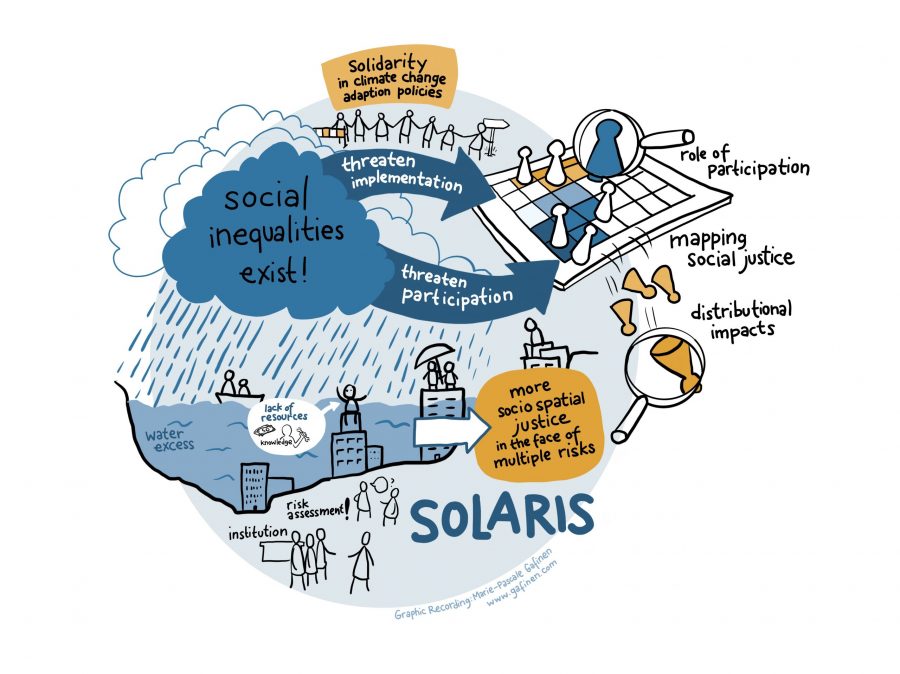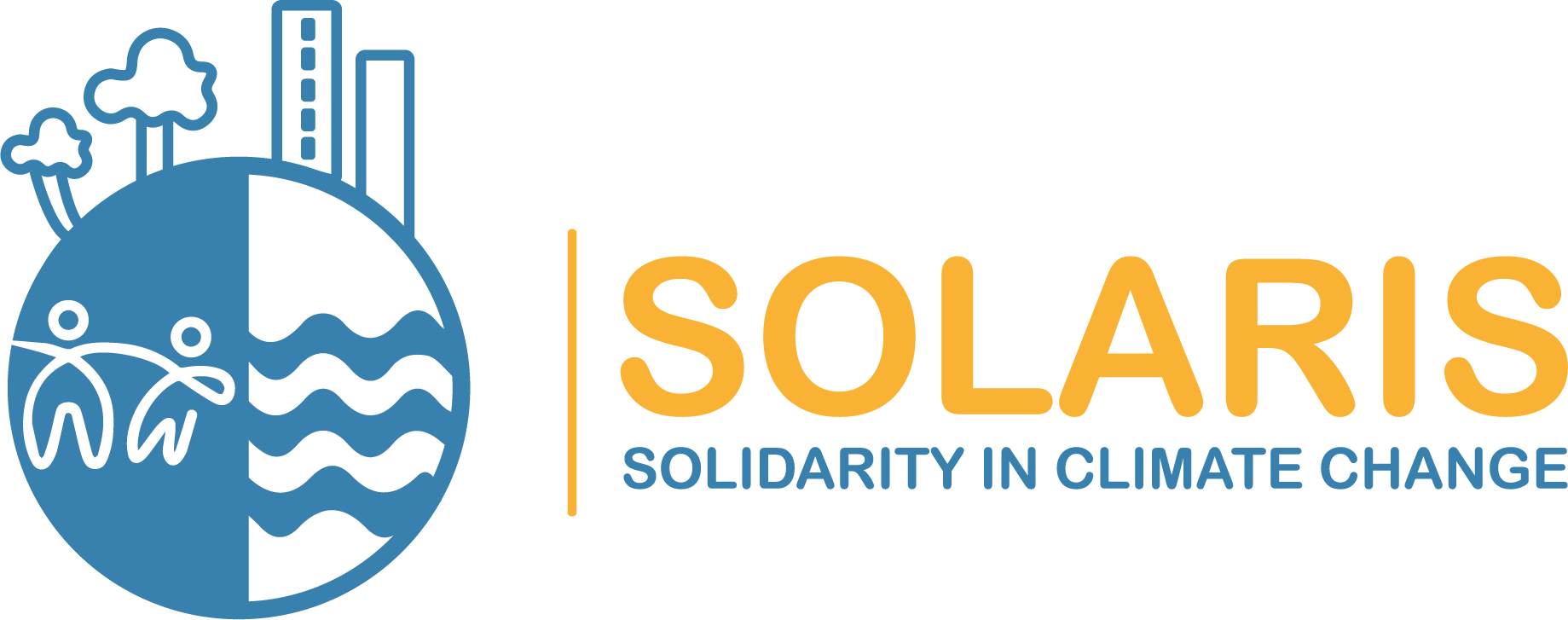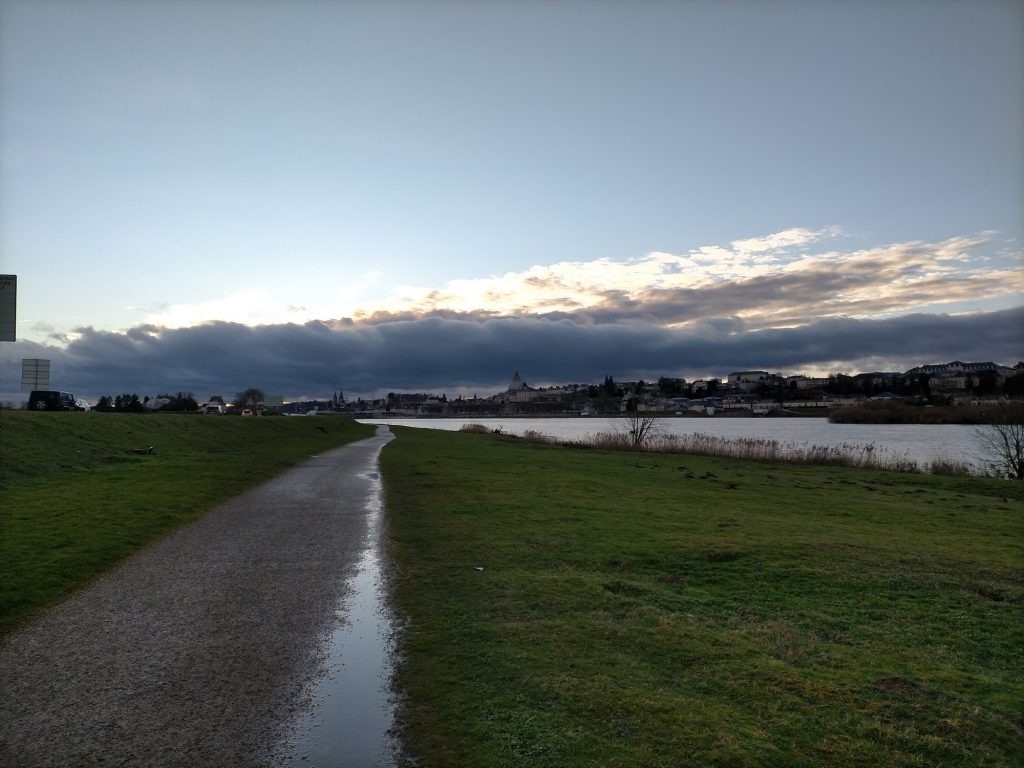
Solaris project
Graphic Recording: Marie-Pascale Gafinen
www.gafinen.com
Mitigation policies are insufficient to deal with “dangerous anthropogenic interference” (IPCC, 2018) and adaptation is critical. Climate change adaptation policies need to address physical impacts, but are subject to social, political and spatial trade-offs. In Europe, major implementation challenges arise in relation to democracy, solidarity and social justice. We must anticipate the distributional impacts of deliberative participation processes when forming policies. SOLARIS (“SOLidarity in climate change Adaptation policies: towards more socio-spatial justice in the face of multiple RISks”) focuses on social-spatial injustices of Climate Change Adaptation Policies (CCAP). SOLARIS aims to fill the gap in analysis of social justice in relation to climate change adaptation policies. SOLARIS has both scientific and societal objectives and outcomes. It aims to: develop conceptual and analytical approaches to reveal social justice perspectives of CCAPs and explore the policy and decisionmaking process for a large range of stakeholders (e.g. policy-makers, practitioners, citizens etc.) to facilitate better participatory processes.
Our hypothesis in the SOLARIS project is that social and spatial inequalities exist and threaten the implementation of climate change adaptation policies and the equitable involvement of affected citizens. Several potential social injustices may occur in face of climate change and policies implemented to assist adaptation: i) injustice in the levels of risk experienced and how these will be impacted by climate changes ii) injustice related to the level of contribution to tackling risk and implementing climate adaptation iii) differences in the level of ability to impact decision-making, and iv) injustice in the capacity to respond and adapt. Understanding how these injustices occur and who is advantaged or disadvantaged and in what manner is critical to implementing socially acceptable and just climate change adaptation policies.
This is particularly true for floods, that are among the main climate and weather-related causes of damage in Europe. Through the lens of flood risk management, we will evaluate the design of climate change adaptation policies and the instruments that they use to reduce the risk from extreme events. Concentrating on those strategies which better integrate adaptive actions, SOLARIS focuses on flood prevention, the accommodation of water to reduce impacts and flood preparation and recovery. A case study approach will be adopted (2 per country) to analyse cases which have implemented, or which are in the process of implementing climate change adaptation policies. This approach permits the study of ongoing participation as well as exampling the socio-spatial inequalities that may only be revealed post-implementation.
Based on multi-disciplinary research from four countries (Belgium, England, Finland, France), the SOLARIS project addresses two questions: i) How can we assess and map socio-spatial inequalities related to the implementation of climate change adaptation policies? We explore what factors make specific groups less involved in climate change adaptation policies and analyse their distributional impacts. ii) How are inequalities addressed by adaptation policies? We examine what solidarity mechanisms are implemented and how affected groups are engaged in adaptation policies. Integration in the decision-making process is studied through citizen participation during the processes of definition and implementation.
Through these two research questions, the project contributes to the first call priority: Social justice and participation. SOLARIS addresses adaptation to climate change through revealing injustice and need for solidarity. It also aims to assess the public participation of citizens during the design and implementation of CCAP planning instruments in the case of flood risk strategies and how these processes impact on the distribution of outcomes.
COORDINATION
Ms Mathilde GRALEPOIS (CITERES – Cités, Territoires, Environnement et Sociétés research center – University of Tours)
PARTNERS
Finnish Environment Institute (SYKE)
Flood Hazard Research Centre – Middlesex University
LAB’URBA Research Center- University of Paris Est-Créteil
CITERES Research Center – University of Tours
CRESC Research Center – University of Antwerp
GeF Research Center – National Conservatory of Arts and Crafts
Funding : ANR – 295 480 euros
start of the project and duration : fe 2021 – 36 Months



